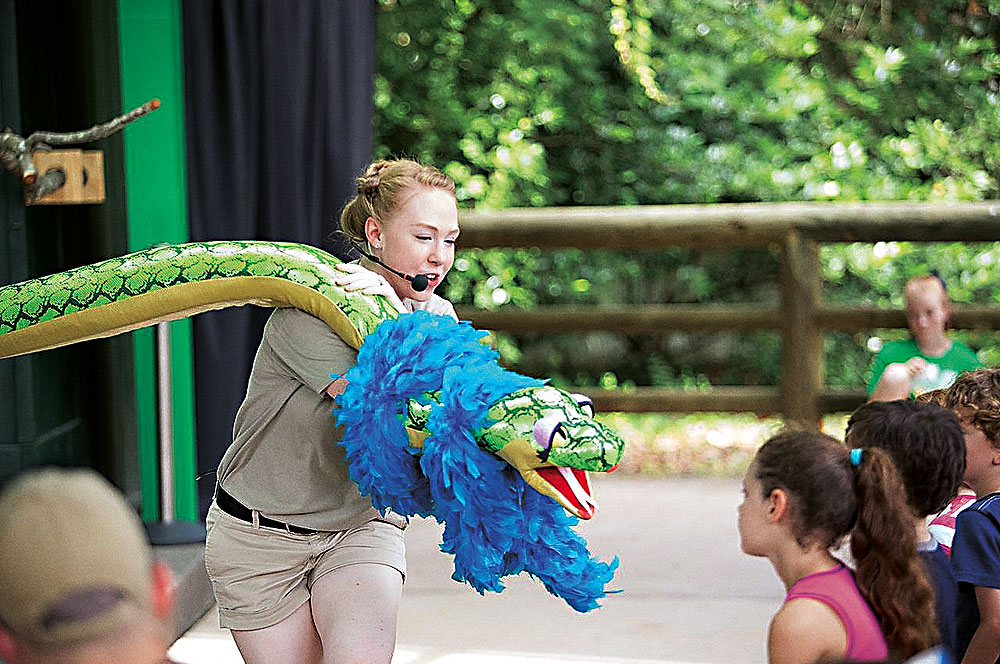The Relay Begins
WASHINGTON, D.C.: A new playwriting collective is drawing inspiration from 13P, a group of 13 mid-career playwrights that formed in 2003 with the mission to produce 13 plays, then disbanded as planned in summer 2012 (“Implosion Explosion,” AT, Sept. ’12). The Welders, which takes its name from a poem by Cherríe Moraga, consists of five playwrights who will each take turns as artistic director over three next years producing or workshopping their five plays.
But unlike 13P, the Welders don’t plan to self-destruct; instead, in 2016, its members will select another five playwrights to whom they’ll hand over the reins. Jojo Ruf, general manager of the National New Play Network, serves as executive and creative director of the Welders and will provide production and dramaturgical support. The five playwrights are Bob Bartlett, Renee Calarco, Allyson Currin, Caleen Sinnette Jennings and Gwydion Suilebhan.
“We’re committed to building something lasting for the D.C. region,” says Suilebhan. “We’re creating a stable, institutionally unaffiliated platform on which artists can tell new stories.” Adds Calarco: “I think all of us share the same dream, and that’s to make Washington the place to go see new plays.” The Atlas Performing Arts Center will be the group’s base.
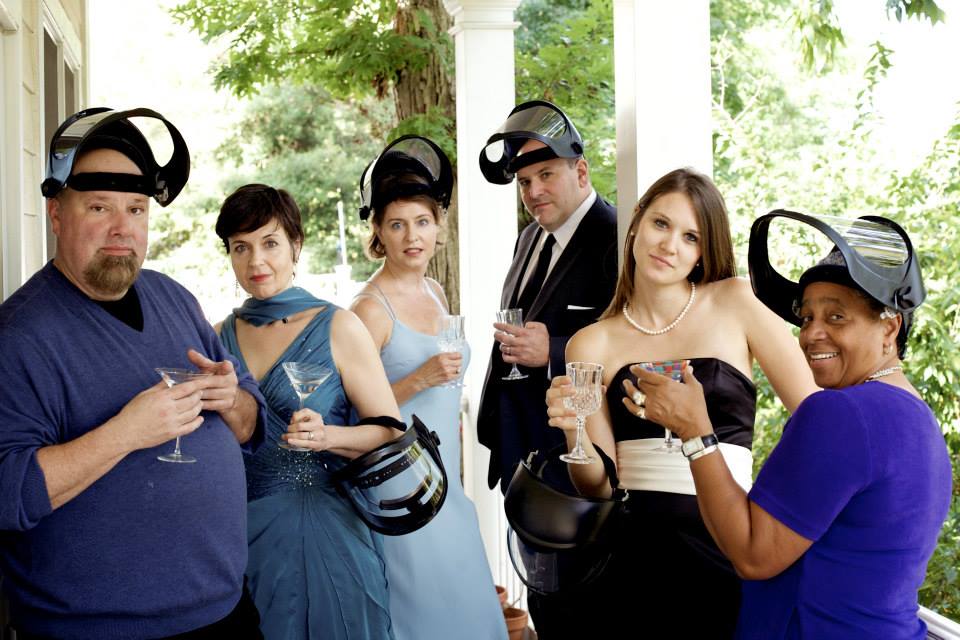
New Directions
ARLES, FRANCE: American playwrights may not have it easy, but there’s no shortage of new-play development programs, retreats, workshops, awards, commissions, etc., focused on developing and supporting them. Apart from the Lincoln Center Theater Directors Lab, where are the programs for directors?
One of the nation’s preeminent new work incubators, the Sundance Institute Theatre Program, recently stepped into that breach with a new Theatre Directors Retreat, cohosted by France’s LUMA Foundation.
Six directors convened at the Domaine de L’Armellière, in the idyllic countryside of Arles (made famous by Van Gogh) July 29–Aug. 9, to rest, recharge and compare notes.
The idea began with New York City–based director Anne Kauffman, who was among the directors at the retreat as well one of its organizers, and Sundance Theatre Program producing director Christopher Hibma. “I think of this as a pilot program, where the directors we’ve chosen are architects of future of the residency,” says Kauffman, whose fellow retreaters included Lisa Peterson, Chay Yew, Liesl Tommy, Ken Rus Schmoll and Indhu Rubasingham. (All of the above are Americans except for Rubasingham, who heads London’s Tricycle Theatre.) “Being a freelance director, you don’t have time to dream,” Kauffman adds. “And directors do not naturally get together and share ideas.”
Hibma notes that the location, in addition to reflecting the conservationist ethic of LUMA Foundation’s Maja Hoffmann, offered participants the chance to catch Les Rencontres d’Arles, an international photography exhibit, for inspiration. He emphasizes that the retreat was not geared toward any end product. “We took as our model the Ucross Retreat,” Hibma says, referring to the 18-day colony Sundance hosts in Wyoming each winter. “That retreat is a place where writers are allowed to do whatever they wish—catching up on their sleep or going on long walks.”
Hmm: Snowy Wyoming, or the sunny south of France—who’s getting the better deal here?
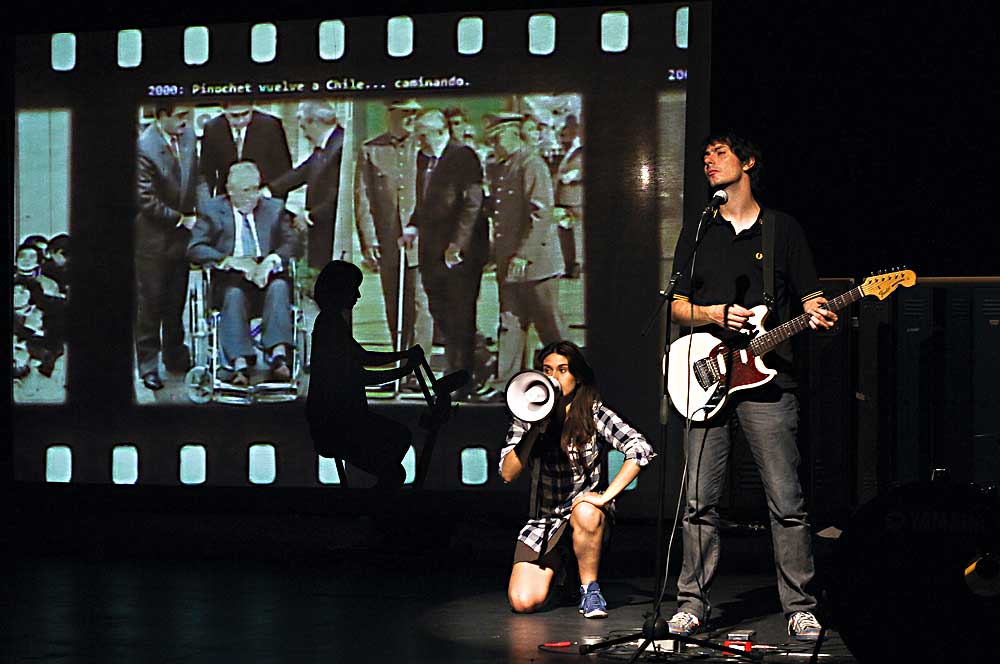
Radar Pinging Back
LOS ANGELES: “As a renewal of theatrical possibility and as an expander of audience sensibility, Radar L.A. is an invaluable addition to the city’s cultural ecology,” wrote Charles McNulty in the Los Angeles Times after the city’s first Radar festival in 2011. This month Radar returns to L.A., Sept. 20–Oct. 6, bringing with it 16 productions by groups from the U.S. and abroad.
Programming it, as before, are the Public Theater’s Mark Russell, along with two L.A.-based curators, REDCAT’s Mark Murphy and Center Theatre Group’s Diane Rodriguez. Though known for showcasing cutting-edge work by international groups, Radar L.A. will put a spotlight on local talent. Janie Geiser and Erik Ehn present Clouded Sulphur (death is a knot undone), merging puppetry, projection, text and music to explore the unsolved murder of a 15-year-old girl. Stardust, by L.A.-based David Roussève/REALITY, examines coming of age in an electronic world; the protagonist, a gay African-American teen, is glimpsed onstage only through tweets and texts.
LAPD (Los Angeles Poverty Department) teamed with Dutch group Wunderbaum to create Hospital, in which disturbing realities of health care are treated via send-ups of TV drama. L.A. native Luis Alfaro presents St. Jude, revisiting his Central Valley childhood. Meanwhile, solo artist Roger Guenveur Smith takes on a piece of L.A. history in Rodney King, Trieu Tran’s Uncle Ho to Uncle Sam looks at epic survival, and Theatre Movement Bazaar’s Track 3 sets Chekhov’s Three Sisters to a disco beat.
International artists include Argentinean writer, director and performer Lola Arias, who examines Chile’s tumultuous history through the eyes of artists born during Pinochet’s rule in El año en que nací (The Year I Was Born), and Mariano Pensotti, another Argentinean, whose Sometimes I think, I can see you is billed as an “urban intervention” drawing inspiration from audience members and passersby. And Japan’s Setagaya Public Theater and the U.K.’s Complicite present Shun-kin, an intricate, highly physical piece on beauty and violence.
“We are excited at the range and quality of work to be featured—and the professional symposium Sept. 26 and 27, which will focus on interdisciplinary approaches to developing new theatrical forms,” says REDCAT’s Murphy.
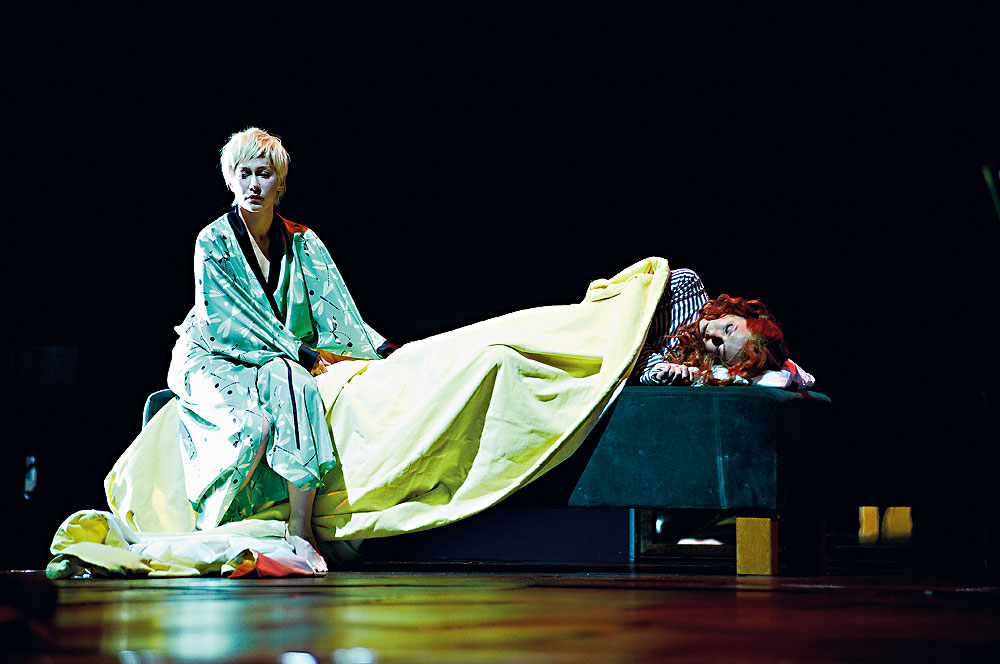
Lines and Waves
NEW YORK CITY: When the French Institute Alliance Française previewed its adventurous fall performance series Crossing the Line this past summer, comparisons to the Brooklyn Academy of Music’s older-and-presumably-wiser Next Wave Festival were inevitable. One enthusiast for the FIAF program prompted giggles by referring to BAM’s pioneering fest as “the permanent wave”—a moniker that is as much a tribute as a tweak, given that the series, curated by BAM executive producer Joseph V. Melillo, is in its 31st season, and can properly boast that its groundbreaking programming during those years has enriched America’s performance landscape. Crossing the Line, by comparison, is a mere seven seasons old, but its ambitions to shake up the status quo are equally apparent.
One tactic Crossing the Line will take during its Sept. 19–Oct. 13 run of 13 premieres and 3 commissions is to send audiences on site-specific forays around Manhattan and Brooklyn, for such presentations as artist/activist Steve Lambert’s Capitalism Works for Me! (True/False), which involves a giant, attention-grabbing illuminated sign somewhere in Times Square; and Annie Dorsen’s late-night Spokaoke, a participatory event slated for a bar on East 13th Street.
Other shows will settle for more conventional venues like Florence Gould Hall (where Nature Theater of Oklahoma will debut two new installments of its epic Life & Times, Sept. 20–21) and La MaMa E.T.C. (where French director Pascal Rambert debuts a (micro) history of world economics, danced on Oct. 10–12). Co-curators for the fest are Simon Dove, FIAF artistic director Lili Chopra and Gideon Lester, director of theatre programs at Bard College. Visit.
Next Wave tees off simultaneously, headlining such international stars as Canadian avant-gardist Robert Lepage, whose Shanghai-set The Blue Dragon runs Sept. 18–21; TR Warszawa of Poland’s take on Nosferatu (Oct. 30–Nov. 2), directed by wünderkind Grzegorz Jarzyna; and German director Thomas Ostermeier’s rendition of An Enemy of the People (Nov. 6–10). The waves keep coming.
Community Service
BOSTON: What if a theatre offered cheap tickets and nobody showed up? Huntington Theatre Company needn’t have worried, but just to be sure, they started their new “Community Membership” program quietly, promoting it through 100 or so local social service organizations that work with low-income Bostonians, including Urban Edge, Parker Hill/Fenway Head Start and Friends of Grove Hall Library. Now that it’s been running since early 2012, and close to 3,000 tickets have been sold to around 1,200 members, the Huntington has made it official, and garnered a big-ticket sponsor in the bargain—Santander Bank, which is subsidizing the program with an initial outlay of $25,000.
The deal is simple: Those who sign up for the free program get a special code that enables them to buy any available seats to any Huntington production for just $15. “They’re patrons like every patron, and they have control of the theatregoing experience,” says Huntington managing director Michael Maso. “We don’t want this to feel like charity. It’s true that most of our audience is really well off, but we want to create another segment of patrons who have every bit as much passion for the theatre, just fewer dollars.”
Awards Shows Up and Running
PHILADELPHIA AND SAN FRANCISCO: A veteran has returned to the theatre-awards fray, and a newcomer has entered it. Philadelphia’s Barrymore Awards has rebooted under the aegis of a collective called Theatre Philadelphia, and Theatre Bay Area is kicking off a new peer-judged awards competition, as yet unnamed (TBA, indeed).
Philly’s 18-year-old awards show went dark last year when its sponsor, the Theatre Alliance of Greater Philadelphia, folded. The new Barrymores will take another year to relaunch, with the first iteration expected in the fall of 2014. (Shows staged in 2012–13 will just have to save their press clippings, as they’ve fallen into an unfortunate no-awards gap.) Going forward, any show that has at least 12 performances will be eligible.
In San Francisco, TBA will follow a model similar to LA Stage Alliance’s Ovation Awards, in which adjudicators, drawn from the local theatre industry, evaluate and recommend shows to peers and then vote on them. The initial judging period will be Sept. 1–Aug. 31, 2014. Another planned feature mimics Chicago’s Jeff Awards, generating “real-time, patron-friendly recommendations” from judges while shows are still on. The awards’ manager is BAYSTAGES editor Robert Sokol.
Retooled for Texas
BRONX, N.Y., AND HOUSTON: If Avenue Q is an adult parody of educational TV, Avenue Zoo, created by the Wildlife Conservation Society at its Bronx Zoo location last year, injects some musical-theatre attitude—and some wisecracking puppets—back into family-friendly pedagogy. But while the show’s Bronx tale features a guest turn by Q’s lovable Kate Monster, a new version designed specifically for the Houston Zoo by director/puppeteer Sharon Wheatley localizes some references, and now follows animal-loving Zoe as she meets and learns about the zoo’s furry and feathered residents. Because, after all, everyone’s a little bit animalist.
Open and Shut
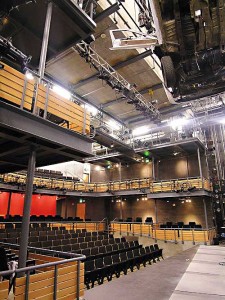
NATIONWIDE: The spring and summer witnessed their share of moves, sales, closures and the like at theatres large and small. In Washington, D.C., Woolly Mammoth Theatre Company purchased the 30,000-square-foot downtown facility it has called home since 2005, completing a chapter that began in 1998 when it began to renovate the space with a $9-million capital campaign while staging its work in its original 114-seat home, then in various spaces as an itinerant company. The new space, which has won awards for McInturff Architects of Bethesda, Md., doubled the company’s seats and quadrupled its square footage.
In the same neighborhood, the arts support organization CulturalDC purchased its 6,000-square-foot Flashpoint arts space, after the landlord gave it the option of purchasing rather than facing a prohibitive rent increase. Flashpoint includes the black-box Mead Theatre Lab and the Coors Dance Studio.
In Portland, Ore., the itinerant, five-year-old Jewish Theatre Collaborative will take up residence with El Centro Milagro, aka Miracle Theatre Group, a company that’s been doing theatre on Portland’s Eastside for nearly 30 years. The move solidifies a long bond between the companies and their leaders (Sacha Reich and José Gonzalez, respectively).
Earlier this year, in the college town of Institute, W. Va., West Virginia State University unveiled the David Stephen Skeen Black Box Theatre, an experimental space named after a late alumnus of the college. Student work and other small-scale productions have already been programmed there.
In Chicago, there was bad news for the historic Uptown Hull House Center, which will be gutted and turned into apartments by its landlords despite a protest by several local organizations, including Preservation Chicago. Among those lobbying to preserve the space were former members of the Organic Theater Company, which put the venue—and Chicago’s off-Loop—on the map with 1970s-era premieres of David Mamet’s Sexual Perversity in Chicago and Joe Mantegna’s Bleacher Bums. The Building was also the site of Jackie Taylor’s Black Ensemble Theatre for many years and most recently the home of Pegasus Players.
A number of Los Angeles companies faced or succumbed to upheaval. The musical theatre revival company Reprise, for one, closed after a year’s uncertain hiatus, citing a failure to raise enough funds to stay open. And two Hollywood-based theatre companies—the LGBT bastion Celebration Theatre and the ensemble-driven Open Fist Theatre Company—were priced out of their spaces on a stretch of Santa Monica Boulevard commonly known as Theater Row. According to a report in LA Weekly, the two companies are exploring joining forces with Rogue Machine, another L.A. company, to find a theatre space they can share.
In nearby Burbank, the Colony Theatre emerged intact from an uncertain year and a desperate “Save the Colony” campaign. Artistic director Barbara Beckley cites a major grant from the Marilyn P. & Wayne H. Kohl Memorial Fund, along with re-upped support from current subscribers, as bolstering the Colony’s health. The company’s 2013–14 season begins with Daniel Beaty’s Breath and Imagination: The Story of Roland Hayes (Sept. 14–Oct. 13).
August Occasions
PITTSBURGH and NEW YORK CITY: Together they constitute one of America’s great monuments: the 10 plays that the late August Wilson wrote, each set in a different decade in the U.S., and almost all set in Pittsburgh’s historically African-American Hill District. While it’s safe to surmise that not a day goes by in which an August Wilson play is not in production in the U.S., all 10 are seldom seen together. In 2008, the Kennedy Center hosted a memorable festival of readings, tracing the plays chronologically from Gem of the Ocean to Radio Golf.
And in Pittsburgh, Wilson’s hometown, the Pittsburgh Playwrights Theatre Company recently capped its own decade-long milestone, having presented all 10 Wilson plays in 10 consecutive years, and in the order in which they premiered in New York, starting with Ma Rainey’s Black Bottom and ending this past summer with Radio Golf, which closed on June 29. It was something of a personal triumph for the company’s founder, Mark Clayton Southers, who produced the plays as part of the theatre’s seasons and designed the sets for each.
Following a similar premiere-order run is a new reading series in New York, which began on Aug. 26 and will run through Sept. 28 at the Greene Space. The series, which features many of the original actors reprising their roles, from Leslie Uggams to Ruben Santiago-Hudson, will be recorded to create a complete audio version of all 10 plays.
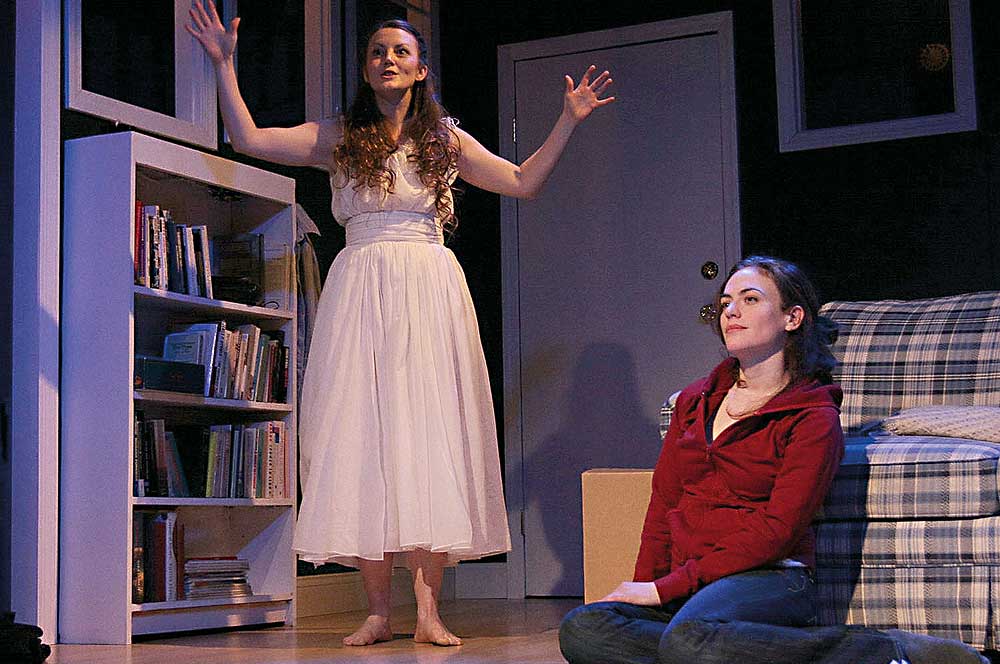
They Love Lucy
NEW YORK CITY: This month Rattlestick Playwrights Theater kicks off its 2013–14 season with five plays by a writer it has long championed: Lucy Thurber. Her Hill Town Plays are on view there through Sept. 28.
Rattlestick has produced three of Thurber’s Hill Town scripts before, including Where We’re Born, Killers and Other Family and Stay. The other two are Scarcity and Ashville; the latter will premiere at Rattlestick under Karen Allen’s direction.
The five shows will run at four different spaces—Rattlestick’s own, the Cherry Lane, Axis Theatre and the New Ohio Theatre—and the others will be directed by Gaye Taylor Upchurch, Jackson Gay, Caitriona McLaughlin and Daniel Talbott.
The Thurber cycle, which follows the journey of a poor rural gay girl through her life, is being touted as the first iteration of an ambitious new Rattlestick tradition, in which artistic director David Van Asselt will produce five plays concurrently in West Village theatres each fall.

